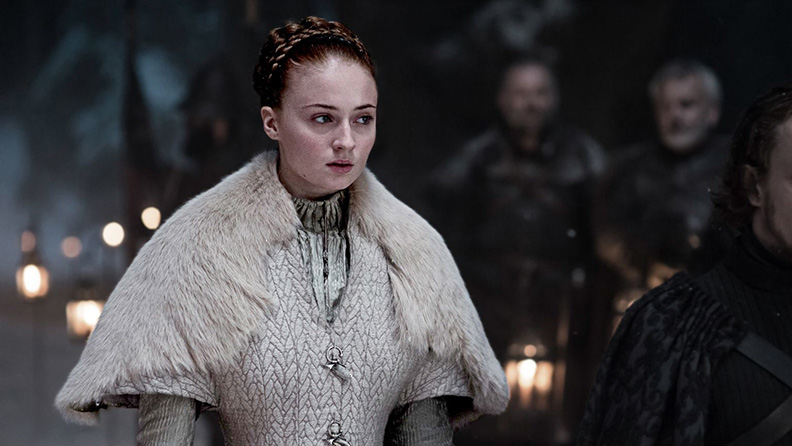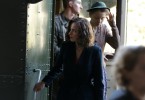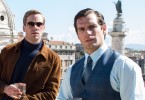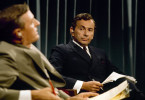Game of Thrones
“Unbowed, Unbent, Unbroken”
(HBO)
D
There is only one thing I want to talk about in this last Game of Thrones episode, “Unbowed, Unbent, Unbroken”: the last scene. But to do that I feel like I at least have to give it the courtesy of everything that came before it. Arya is in a room (in the House of Black of White) filled with pillars of human heads, Bronn and Jaime have a lackluster battle with the Sand Snakes, and, well … what else happened? It is hard to remember after watching the episode’s horrific final moments. So, yeah, let’s talk about that. Spoilers ahead (clearly).
Sansa Stark and Ramsay Bolton’s wedding is at night. Theon — an ex-loyal friend to the Starks — is sent by his torturous master, Ramsay, to escort Sansa to the wedding. Once the wedding is over, Ramsay takes Sansa back to his quarters and demands Theon watch as he rapes her. It is — by far — the most shocking and horrific scene Game of Thrones has given us, making a point to catch Theon’s reaction (tears, regret, and fear) as we’re forced to hear what is happening (escalating) and then cut to black.
Shocking, rancid, and pointless, right? Why did this need to happen? Don’t we hate Ramsay already? Don’t we want him to die in the end in some horrific way? Why did the show decide to write in such a despicable scene? So we can really, really, really hate him instead of just really, really hate him? At this point, Game of Thrones is simply manufacturing hatred rather than eliciting it organically, obsessed more with “getting away” with something and causing a ruckus.
Sansa has grown up before our eyes, and as a longtime viewer, this seemed even more bizarre to me — as if the writers were punishing their audience. Her character has been through so much already … so, again, why? Is it worth experiencing this superfluous raping just to set up and justify Theon, or Sansa, or literally anyone exacting revenge on one character? This was the one time I said to myself, “this show isn’t worth it anymore,” and, “maybe it’s time to stop watching.” This didn’t happen in the book; it was created for the show. Moments like it were in the book, but not this. In the end, what did it actually accomplish, storywise, that couldn’t have been expressed any other way? Not saying that art should be devoid of risk, but I don’t see any art here.





